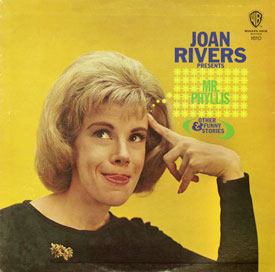
Joan Rivers Presents Mr Phyllis
& Other Funny Stories.
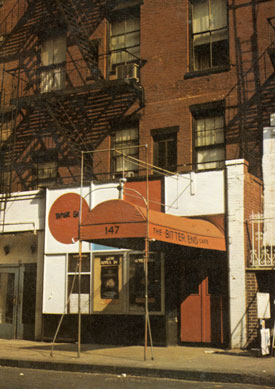
The Bitter End as it was in the mid-1960s, when Joan Rivers appeared there. (The club opened in 1961.)
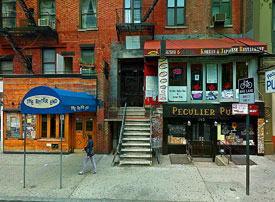
The Bitter End in later years.
I knew Joan Rivers in the mid-1960s before she had become famous. In view of the fact that she has recently died, I thought it might be interesting for people if I recorded a few things about her from those days. She and Edgar Rosenberg had only just been married, and the birth of their daughter was still very much in the future, when I first got to know them. Edgar was several years older than Joan, and that seemed to make her feel secure, as she was often very nervy and excitable and sometimes needing calming. Edgar himself was a very calm and tolerant person, of a sweet and kindly nature, and he adored Joan. She was his princess. They lived at that time in a small and very unglamorous Manhattan apartment, not having much money. When one was asked to supper (she was always effusive in her invitations, as she was in everything), it meant sitting with Joan and Edgar at the kitchen table eating spaghetti. Edgar did a lot of cooking and preparing and housework. I do not recall Joan being a vegetarian at that time, though she was later well known for it. Edgar wanted more than anything for Joan to be a success in her career as a comedienne and he was her biggest supporter. She was already achieving some early success but was teetering on the brink of either really making it or not making it, which is a nervous moment for anyone. She made a hilariously funny vinyl record, which she gave me and which I still have, entitled MR. PHYLLIS & OTHER FUNNY STORIES. The record was issued by Warner Brothers (W1610) in either 1965 or 1966. I have scanned the front cover to go with this account. The text on the back is so appalling that I have not scanned it! Not many people were aware of the existence of this mono record (it was not even issued in stereo) except her circle of friends, and I do not expect many copies survive. In it, she recorded some of her wonderfully funny monologue skits about ‘Mr. Phyllis’, who was based upon her own hairdresser. Joan’s comedy material was then mostly autobiographical, and she talked and joked a lot about her upbringing by rather straight-laced Jewish parents, especially her dominant ‘Jewish mother’. Joan was very puritanical and prudish at that time, and she would rather die than utter a curse word in public or make an off-colour joke of any kind. I could never understand how she could change so completely and become renowned for extremely rude jokes later on, as it was so entirely against her nature. Joan was at that time managed by a wonderful man named Jack Rollins, who cultivated a coterie of young comedians, of whom Woody Allen (who had not yet made a film) was the most successful, and Joan was his client who showed signs of coming up second. Another of Jack’s clients and protégés was Dick Cavett, a charming young man with a wonderfully droll manner as a stand-up comic. He used to appear a lot at the Bitter End, and at the Bon Soir at 40 West 8th Street, where Joan herself had had a big success.
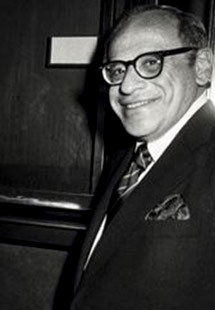
Joan’s husband Edgar Rosenberg,
such a sweet man.
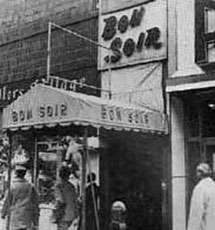
The Bon Soir on West 8th Street, where Joan and Dick Cavett were such a success, as it was in the mid-1960s.
